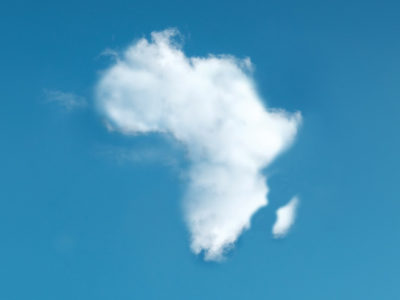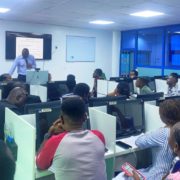By Osasome, C.O
The Nigerian government is at a crossroads over approving a proposed 40% increase in telecommunications tariffs as operators demand a 100% price hike to address rising operational costs. This tariff impasse highlights a critical juncture for the country’s telecommunications industry. Experts say issues of sustainability, affordability, and national digital inclusion are all at stake.
RELATED: Nigerian telecom operators warn of service shedding in 2025, demand urgent tariff reforms
Both the Minister of Communications, Innovation, and Digital Economy, Dr. Bosun Tijani, and the Nigerian Communications Commission (NCC) have expressed reluctance to approve a 100% increase. They are citing its potential to derail the government’s agenda for widespread digital inclusion. However, telecom operators warn that without a substantial tariff adjustment, the sector faces stagnation, and network degradation. Operators are worried over possible shutdowns, threatening millions of subscribers and Nigeria’s digital economy.
Operators Call for Action
Telecom companies, represented by the Association of Licensed Telecommunications Operators of Nigeria (ALTON) and the Association of Telecoms Operators of Nigeria (ATCON), have been lobbying for a tariff review for years. They argue that skyrocketing diesel prices for powering base stations, rising costs of imported telecom equipment, inflation, and the depreciation of the naira have rendered the current pricing structure unsustainable.
Karl Toriola, CEO of MTN Nigeria, has been vocal about the financial strain on operators. With MTN servicing 78 million subscribers, Toriola warned that the company might be forced to halt operations if tariffs remain stagnant.
“There’s no way that the industry could continue to sustain itself and provide the required quality of service under the present structure,” Toriola stated.
Similarly, Gbenga Adebayo, Chairman of ALTON, emphasised the need for a pricing structure driven by market forces.
“The current pricing regime is not sustainable given the inflationary pressures we face. Government intervention in pricing will only deter investors and lower service quality,” Adebayo said.
Regulatory Challenges and Economic Realities
The NCC has remained cautious about approving a 100% tariff hike. Regulatory authorities are expressing concerns over the potential financial burden on Nigerians already grappling with inflation at a three-decade high. Experts highlight the delicate balancing act required by the regulator. It must ensure industry sustainability while keeping telecom services affordable for the average consumer.
Despite operators’ pleas, the NCC has pointed out that any drastic tariff adjustment could disproportionately impact low-income households, undermining digital inclusion efforts.
The cost of providing telecom services has surged over 2,500% since the last tariff review 11 years ago.
The cost of providing telecom services has surged over 2,500% since the last tariff review 11 years ago. The production cost for one minute of voice call or a gigabyte of data has skyrocketed, operators say, making the current rates unfeasible under Nigeria’s prevailing economic realities.
Implications of Stalemate
Without a resolution, operators warn of severe consequences:
- Service Degradation: Reduced investment in infrastructure could lead to poor quality of service, dropped calls, and slower data speeds.
- Economic Disruption: Businesses reliant on telecom services could face operational challenges, slowing economic growth.
- Job Losses: Thousands of jobs within the telecom sector could be at risk if companies downsize or shut down operations.
- Digital Divide: Efforts to bridge Nigeria’s digital divide could suffer setbacks, affecting education, commerce, and e-governance initiatives.
Government’s Decision Timeline
The government is expected to make a final decision this week, IT Edge News has learned. Stakeholders are urging swift and balanced action to avert a potential crisis in one of Nigeria’s most critical economic sectors.
A Way Forward
Phased approach to tariff increases + government incentives to offset operational costs for operators
Industry experts suggest a phased approach to tariff increases, coupled with government subsidies or incentives to offset operational costs for operators. This could strike a balance between maintaining service quality and protecting consumers from exorbitant costs.
Telecom industry’s future hangs in the balance
As the government weighs its decision, the telecom industry’s future hangs in the balance. The outcome will not only determine the sustainability of the sector but also Nigeria’s trajectory in achieving its digital economy goals. This moment calls for decisive action to secure the industry’s stability while safeguarding the interests of millions of Nigerian consumers.




























